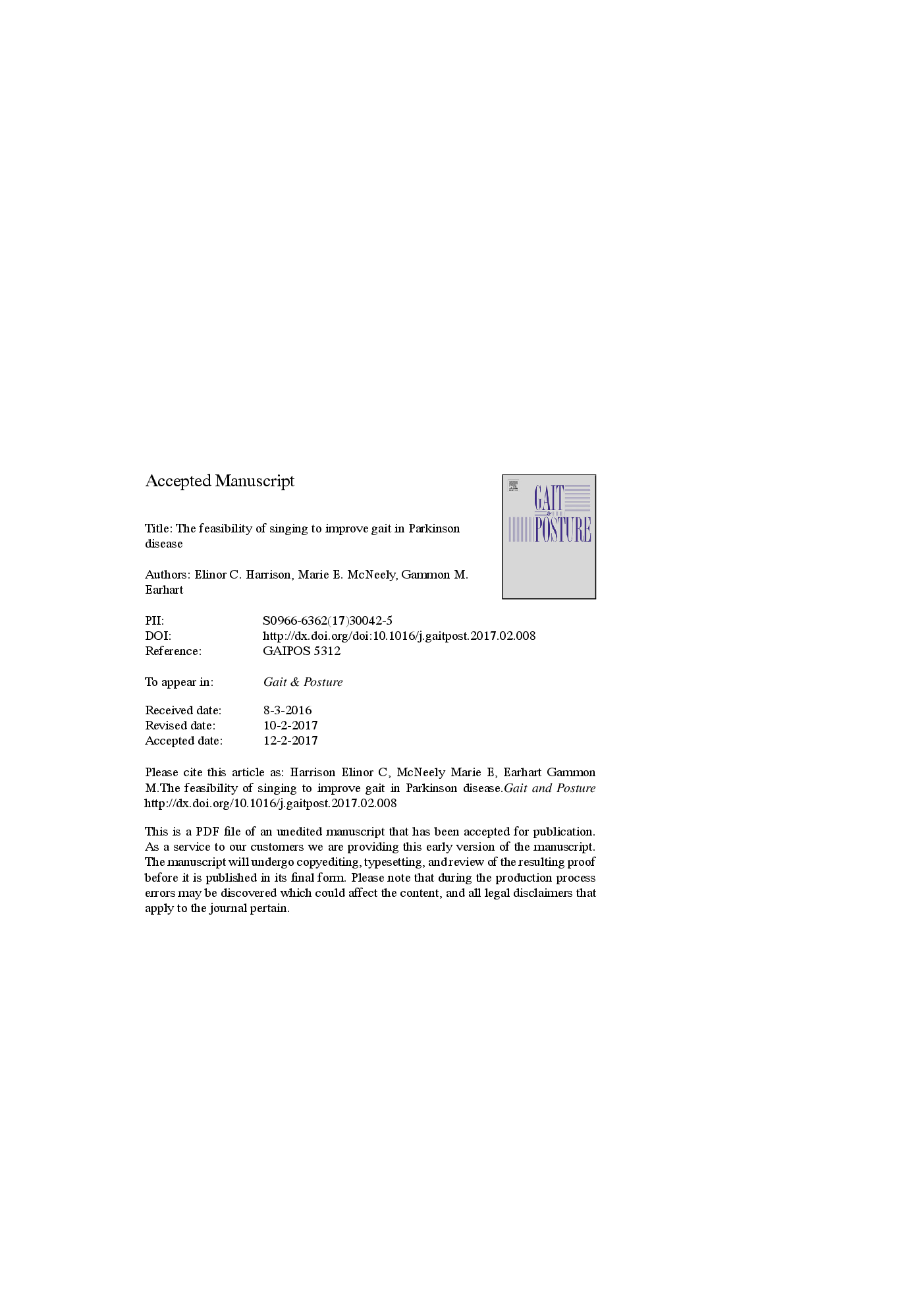ترجمه فارسی عنوان مقاله
امکان پذیری آواز برای بهبود راه رفتن در بیماری پارکینسون
عنوان انگلیسی
The feasibility of singing to improve gait in Parkinson disease
| کد مقاله | سال انتشار | تعداد صفحات مقاله انگلیسی |
|---|---|---|
| 155079 | 2017 | 18 صفحه PDF |
منبع

Publisher : Elsevier - Science Direct (الزویر - ساینس دایرکت)
Journal : Gait & Posture, Volume 53, March 2017, Pages 224-229

